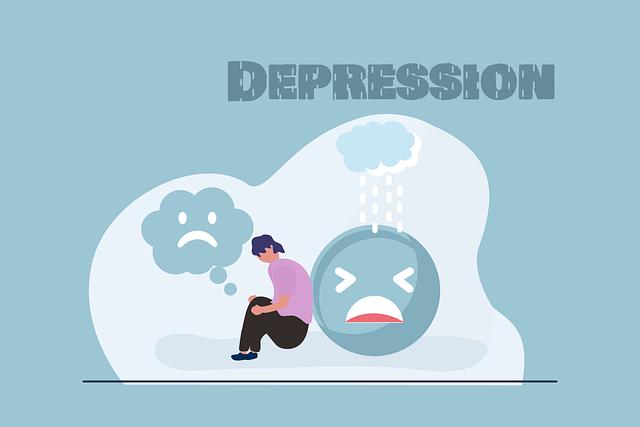Mental health policies targeting young adults must address unique pressures from academics and societal expectations. Implementing access to therapy, including grief counseling, builds resilience and self-esteem. Cultural sensitivity ensures inclusivity, while dedicated grief counseling services help navigate emotional losses, preventing adverse mental health outcomes. Advocacy pushes for early interventions, normalizing mental wellness discussions, integrating coaching into primary care, and recognizing distressing signs to offer timely community-based support like targeted grief programs.
Mental health policy analysis and advocacy are crucial components of ensuring accessible and effective support systems for young adults grappling with their mental well-being. This article delves into three key areas: understanding the profound impact of mental health policies on this demographic, exploring the benefits of grief counseling for emerging adult populations, and discussing advocacy strategies to enhance access to therapy for at-risk individuals. By focusing on these aspects, we aim to highlight innovative approaches to better address the unique challenges young adults face in accessing much-needed therapy, particularly through grief counseling services.
- Understanding Mental Health Policy and Its Impact on Young Adults
- The Role of Grief Counseling in Supporting Emerging Adult Populations
- Advocacy Strategies to Enhance Access to Therapy for At-Risk Individuals
Understanding Mental Health Policy and Its Impact on Young Adults

Mental health policies play a pivotal role in shaping support systems for young adults navigating life’s challenges. This demographic often faces unique pressures, from academic demands to societal expectations and personal struggles. Effective policy interventions can ensure that young adults have access to essential services like therapy for Young Adults and grief counseling, which are crucial for their well-being.
The impact of such policies extends beyond individual relief; it contributes to building resilience and self-esteem in this vulnerable population. Moreover, incorporating cultural sensitivity in mental healthcare practice is essential, as it ensures that services are inclusive and address the diverse needs of young adults from various backgrounds. This holistic approach not only treats symptoms but also fosters a supportive environment where individuals can thrive and overcome obstacles.
The Role of Grief Counseling in Supporting Emerging Adult Populations

Grief counseling plays a pivotal role in supporting emerging adult populations navigating complex emotional landscapes. This therapeutic approach is particularly crucial for young adults facing the profound loss of loved ones, as it offers a safe space to process grief and cultivate mental wellness. In today’s fast-paced world, where social pressures and expectations abound, many young adults struggle with unaddressed grief, which can lead to adverse mental health outcomes. Thus, integrating grief counseling into mental health services is essential, especially within dedicated therapy for young adults.
The impact of grief extends beyond the initial loss, affecting various aspects of an individual’s life, including their social interactions and career trajectories. By incorporating grief counseling into mental wellness podcast series production and public awareness campaigns development, healthcare professionals can foster a deeper understanding of this complex emotion among emerging adults. Furthermore, designing comprehensive mental health education programs that highlight the importance of grief management empowers young adults to seek support and enhance their overall resilience.
Advocacy Strategies to Enhance Access to Therapy for At-Risk Individuals

Advocacy plays a pivotal role in ensuring that individuals at risk of mental health crises, particularly young adults, have access to essential therapy services. One effective strategy involves raising awareness about the importance of early intervention and integrating mental wellness coaching programs into primary healthcare settings. By normalizing conversations around mental health, these initiatives can reduce the stigma associated with seeking therapy for grief counseling or anxiety relief.
Empathy-building strategies are another powerful tool in this advocacy arsenal. Training healthcare professionals to recognize subtler signs of distress and offering accessible counseling options can make a significant difference in the lives of at-risk young adults. Moreover, developing targeted programs that cater to specific mental health needs, such as grief counseling for those navigating loss, can enhance overall community resilience and ensure that support is readily available when needed most.
Mental health policy analysis and advocacy play a pivotal role in ensuring accessible and effective support systems, particularly for young adults. By understanding the impact of mental health policies, we can strategically implement solutions like grief counseling to cater to emerging adult populations. Moreover, adopting innovative advocacy strategies can significantly enhance access to therapy for at-risk individuals, thereby fostering healthier communities. Integrating these approaches ensures that therapy for young adults becomes more inclusive and readily available, addressing the critical need for mental well-being support.









